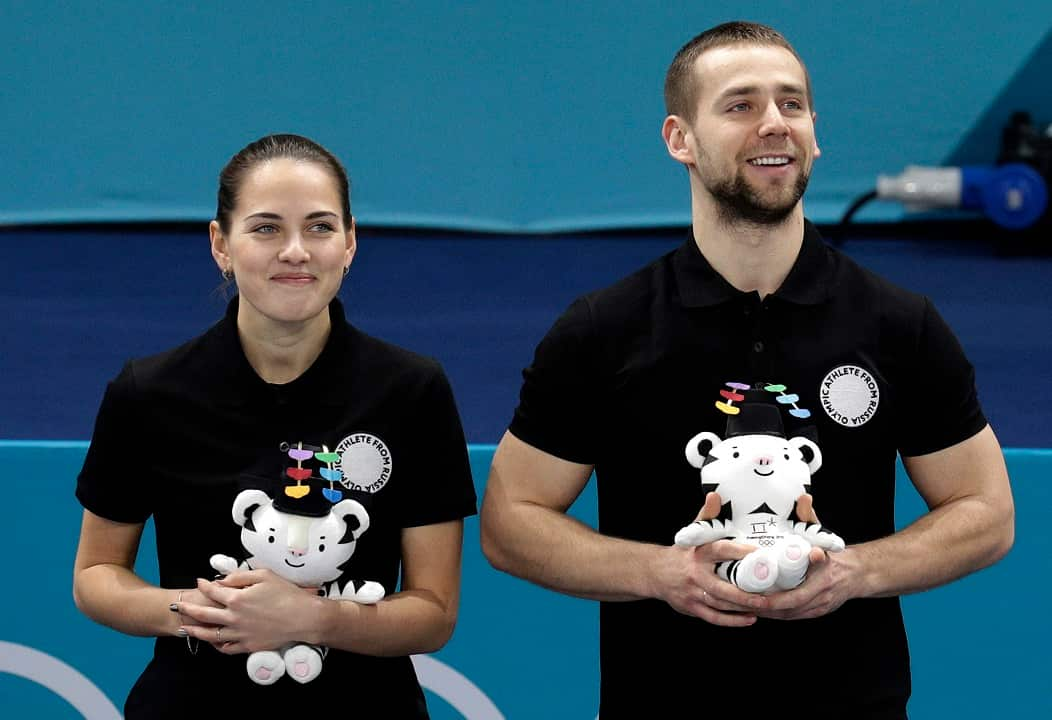Why would an athlete in one of the Winter Games' least taxing and physically demanding sports feel it necessary to use performance-enhancing drugs?
Even curlers taking part in the Olympic competition were left scratching their heads on Monday as news circulated that Alexander Krushelnitsky, who won a bronze medal in the mixed doubles with his wife Anastasia Bryzgalova, is suspected of testing positive for meldonium, a banned substance that increases blood flow and improves exercise capacity.
Meldonium was banned in 2016 and led to Russian tennis player and former world No.1 Maria Sharapova being barred from competition for 15 months.

"I think most people will laugh and ask, 'What could you possibly need doping for?', as I am thinking," said Madeleine Dupont, skipper for the Denmark rink.
"I'm not even sure what use doping would be for in curling.
"There is probably something with strength, I'm not sure, it's not down my alley."
Curlers are more likely to accused of being out of shape than taking drugs to improve their strength or power.
Since becoming part of the Olympic program at the 1998 Nagano Games, curling has worked hard to shed its image as a game played by the unfit.
Curlers going for gold in PyeongChang are far more athletic than they were at the 1988 Calgary Winter Games when Canadian skip Eddie "the Wrench" Werenich was told by the Canadian Curling Association to lose a few kilos so as not to embarrass the country and the Olympics.
But even on the ice in Pyeongchang spectators are as likely to see Olympic medallists with a hint of middle-age spread as much as musclebound sweepers.
"For me it's tough to see doping in curling. Maybe as a brusher but come on, hit the gym you know," Norwegian skip and Olympic 2010 silver medallist Thomas Ulsrud told Reuters.
Even Krushelnitsky's own Olympic Athletes from Russia teammates were at a loss to understand why a curler would need to dope or how they could, with Russia under the drugs spotlight after being accused of running a state-backed, systematic doping program for years.
As a result, its athletes are competing at Pyeongchang as neutral "Olympic Athletes from Russia" (OAR) and on a bond of good behaviour before it's decided whether they can march under their own flag at the closing ceremony.
"We've always said how great it is that we have a sport where scandals don't happen because we really don't need it," said Viktoria Moiseeva, skipper of the Olympic Athletes from Russia women's team.
"I can't imagine what kind of drugs you could use in curling, and for what."

